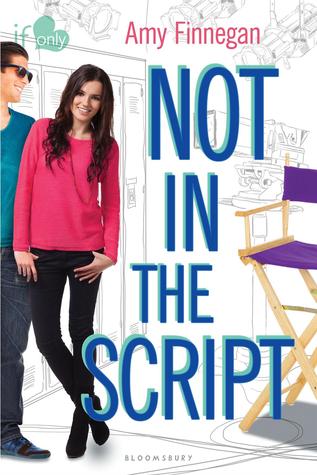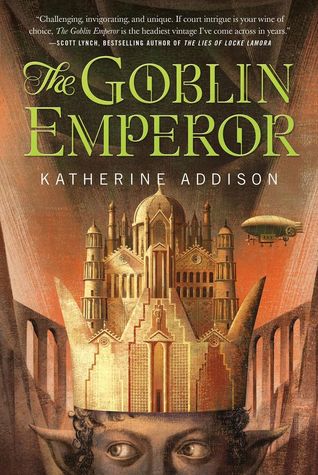Several years ago, the inimitable
Shannon Hale organized a conference run entirely by volunteers, where all the proceeds go to charity. The conference, aptly enough, is called Writing for Charity.
This year, the proceeds went to
First Book and
We Need Diverse Books, both great projects for people who care about books.
This was my first year attending, and while I did have a lot of fun, I also felt a little bit out of my element. Part of this, of course, is being an introvert in a large crowd (yes, I realize it's a large crowd of mostly fellow introverts, but that still doesn't help much!). But part of it was the neither fish nor fowl sense I got from being a not-quite-published writer. I've sold a book, but I haven't gone through any of the editing process, so I don't have the authority of the panelists. But at the same time, I'm not really a beginner either. Luckily, one of my good friends and CPs was in the same boat, so we hung out together quite a bit.
 |
| Photo by Erin Summerill |
That said, I still had a great experience. My very favorite thing was meeting so many authors that I've admired--some of them friends from social media, some just people whose books I like. One of my favorite moments was meeting Jessica Day George, an author I've followed for a long time. We have some mutual friends (one of my best friends was her old college roommate), so I've known who she was since before she was published. But I don't think she knew who I was. This year, though, I went to introduce myself and she said, "I know who you are." And we got to chat a little. That was fun and a little surreal. I know authors are real people, but I love the reaffirmation that so many of them are also gracious, funny, and helpful.
I also learned a few things (or, was reminded of things I already knew but need to work on).
1. Writing isn't easy. You have to do it because you love it. You need to believe in yourself and surround yourself with people who believe in you or it can steamroll you. One of the first panels I went to was quite eye-opening, with authors talking about books that had underperformed (and so the sequels were either cancelled or delayed), or, in one extreme case, an entire trilogy was cancelled prior to publication. Since I just sold a trilogy, I immediately added this to my list of things to worry about. But I also really appreciated the frankness. So often, you only see the success stories--and we love those, because we want to write ourselves into those narratives, but I think we also need to see the failures so that when they come to us (and they will), we can find comfort in knowing that we're not alone. And in some cases, failure can be fertile ground: one of the authors on the panel, Mette Harrison, took her disappointment as permission to write what she wanted, and her latest novel,
The Bishop's Wife, has come out to lots of national attention and fanfare.
2. Diversity isn't just nice to have, it's critical. Valynne Maetani (who has an awesome-sounding book,
Ink and Ashes, coming out this spring) organized a terrific panel on increasing diversity in books. Both she and several other panel members (including Ilima Todd and Erin Summerill) talked about not being able to find books growing up that featured characters like them--or identifying more with white characters than people of color simply because that's all they'd ever read about. They acknowledged the fear a lot of people have about including diversity that's other than their own, but they said you need to do it anyway. But do your due diligence: including stereotypes doesn't help anyone. Do your research, find readers from the culture you're trying to present, and do your work as well and respectfully as possible. Valynne also included an important reminder: diverse characters need to be well-rounded too. Just as no two Caucasians have the exact same interest and background, so too no diverse characters will either. Mostly, the characters should all be
human.
3. There is no YA mafia. One of the funniest panels I attended was helmed by Shannon Hale and several other authors who essentially busted the myth that you have to be well connected (part of the "YA Mafia") to break into publishing. Probably 90% of the authors at the conference were picked up from the slush. (Although I kind of wish there was a YA mafia. Non-violent, of course. But it sounds cool).
4. Give yourself permission to write. The conference presenters and attendees were overwhelmingly women, and many of them have families. I nearly didn't go to the panel on work/life balance because I've found a (tenuous) truce, but I'm so glad I did. Not only did I get to hear Matt Kirby declare (only a little ironically) that he avoids mom-guilt by playing his male privilege card (which had us in stitches), but I realized how many other women *do* feel guilty. To be fair, Matt said that his privilege doesn't excuse him from contributing, but because society tends to (wrongly) expect less of fathers, he doesn't face the same social expectation that he feel guilt for the time his writing takes away from his family. Shannon emphasized that we all need to push the guilt aside, and give ourselves permission to nurture our creative side. If for no other reason that when we are happy and fulfilled as writers, our family tends to be happier too. While family is important (and may on occasion need to preempt writing time), we can't give everything of ourselves away and expect to have anything left.
5. Writers are generally awesome. I love being part of a writing community and associating with so many smart, compassionate, interesting people.
And I got to meet up with several of my agency sisters, which made me all kinds of happy.
 |
| Photo by Erin Summerill, on the right |
I think conferences are wonderful for writers for so many reasons: you learn more about your craft, you connect with other writers, you realize you're not the only crazy person out there. But mostly, conferences are awesome because they can get you energized about what you really love: writing.
 Amy Finnegan's debut, Not in the Script, is adorable--exactly the kind of YA contemporary romance that I like reading.
Amy Finnegan's debut, Not in the Script, is adorable--exactly the kind of YA contemporary romance that I like reading.




